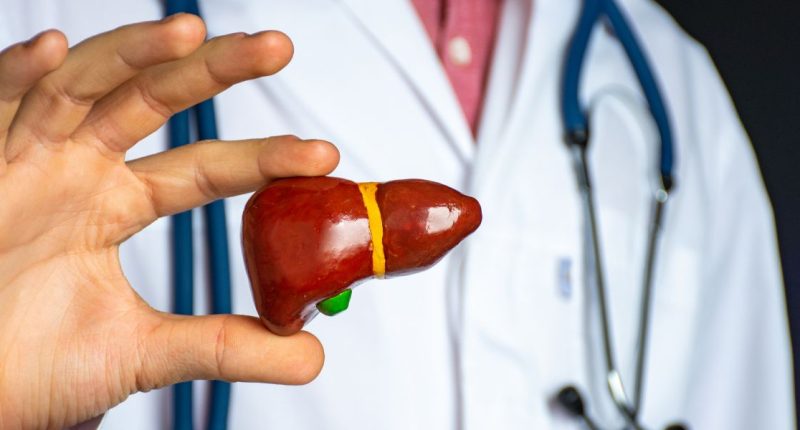Weight loss surgery can prevent people with obesity and fatty liver-related cirrhosis from developing major complications of liver disease, a new study has demonstrated.
Researchers from Cleveland Clinic have suggested that bariatric surgery is a good treatment option for both cirrhosis and obesity.
Senior author Dr Ali Aminian said: “Bariatric surgery was associated with a 72% lower risk of developing serious complications of liver disease and an 80% lower risk of progression to decompensated stage among patients with compensated cirrhosis and obesity.”
Metabolic dysfunction-associated steatohepatitis (MASH) is the most common form of chronic liver disease in the United States and is triggered by type 2 diabetes and obesity.
- Liver disease identified by microbiome signatures
- Glycaemic control in young people improved by automated insulin delivery systems
- Screening for eye disease can also detect liver damage
Roughly 20% of individuals living with MASH end up developing cirrhosis – late-stage liver scarring.
The two stages of cirrhosis are compensated and decompensated. The liver maintains sufficient residual function to support the body’s needs in the compensated stage.
Meanwhile, life-threatening complications occur in the decompensated stage, reflecting the liver’s inability to sustain vital functions and liver transplantation becomes essential for survival.
Corresponding author Dr Sobia Laique said: “Patients with MASH-related cirrhosis have extremely limited treatment options.
“Currently, no therapeutic interventions have demonstrated efficacy in mitigating the risk of severe liver complications within this patient population.”
Dr Laique added: “This underscores a critical unmet need for the development of effective therapies specifically targeting patients with compensated MASH-related cirrhosis.”
During the study, the team of researchers analysed the health outcomes of 62 people with compensated MASH-related cirrhosis and obesity who had bariatric surgery. In addition, they looked at the health outcomes of 106 nonsurgical people.
- Glycaemic control in young people improved by automated insulin delivery systems
- Screening for eye disease can also detect liver damage
- Diabetes and obesity linked to greater risk of liver cancer relapse
A total of 20.9% of the surgical group and 46.4% of the non-surgical group went on to develop one major complication of liver disease, the study has reported.
In addition, the results have shown that 15.6% of the surgical group and 30.7% of the non-surgical group progressed from compensated cirrhosis to the decompensated stage.
Co-author Dr Steven Nissen said: “Currently, lifestyle intervention is the only therapeutic recommendation for compensated MASH-related cirrhosis.
“However, lifestyle changes alone rarely provide the weight loss and metabolic changes needed to reduce the risk of liver complications in this patient population.”
He added: “The study shows that bariatric surgery is an effective treatment that can influence the trajectory of cirrhosis progression in select patients.”
Read more in Nature Medicine.




